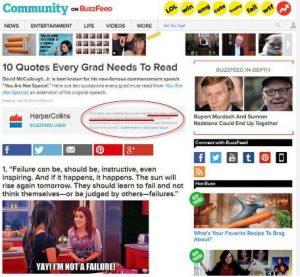7 Ways to Make Money by Blogging

Blogging has become an increasingly popular way for people to share their thoughts, experiences, and expertise. For many, it has evolved from a simple hobby to a profitable and sustainable source of income.
With the right strategy and commitment, you too can turn your passion for writing into a lucrative business.
In this article, we will discuss how to get started with blogging, including choosing the right platform and understanding the importance of web hosting.
Top 7 Ways to Monetize Your Blog
These strategies can help you generate income while providing value to your audience.
Learn how to effectively implement these techniques and discover the best tools and resources to maximize your blog's earning potential.
1. Affiliate Marketing
As an affiliate marketer, you partner with brands or companies to promote their products or services on your blog.
In return, you receive a commission for every sale or lead generated through your unique affiliate link.
There are several benefits to affiliate marketing. First, it is relatively easy to get started, as you don't need to create or manage products yourself.
Secondly, you can focus on promoting products that align with your blog's niche, ensuring that your audience remains engaged and interested.
To succeed in affiliate marketing, consider the following tips:
- Choose products or services that are relevant to your blog's niche and audience.
- Research and join reputable affiliate programs with good commission rates and support.
- Create high-quality content that provides value to your readers while promoting the affiliate products.
- Disclose your affiliate relationship to maintain trust with your audience.
- Monitor and analyze your affiliate performance to optimize and improve your strategy.
- Pay attention to your SEO by using tools like Semrush. This all-in-one SEO suite offers comprehensive tools for keyword research, competitor analysis, and site audits, which can help improve your blog's visibility and drive more targeted traffic.
2. Sponsored Guest Posts
Sponsored guest posts are another effective way to monetize your blog. Brands or companies pay you to publish content that promotes their products, services, or messages.
Sponsored guest posts can help diversify your blog's content and generate additional revenue streams.
To find sponsors and negotiate sponsored guest post deals, follow these steps:
- Create a media kit that highlights your blog's niche, audience demographics, and traffic statistics.
- Research potential sponsors that align with your blog's niche and audience.
- Reach out to these companies with a personalized pitch, showcasing the benefits of partnering with your blog.
- Be transparent about your sponsored content and pricing, and negotiate a mutually beneficial deal.
- Deliver high-quality content that benefits both your audience and the sponsor.
3. Advertising Networks
Advertising networks, such as Google AdSense, allow you to display ads on your blog and earn revenue based on impressions or clicks.
These networks act as intermediaries between publishers (bloggers) and advertisers, making it easier for you to monetize your blog without needing to find advertisers yourself.
Keep in mind that it's essential to balance ad placements with user experience, as excessive ads may deter readers and negatively impact your blog's performance.
4. Selling Products or Services
One of the most direct ways to monetize your blog is by selling products or services. This could be anything from physical products like clothing or accessories, digital products like ebooks or printables, or services such as freelance writing or consulting.
5. Online Courses or Workshops
Another effective method to monetize your blog is by offering online courses or workshops. These could be in the form of pre-recorded video lectures, live webinars, or interactive group sessions.
6. Membership or Subscription-Based Content
Implementing membership or subscription-based content is another way to generate income from your blog. This model involves offering exclusive content or resources to subscribers who pay a recurring fee. To set up and manage this type of content, you can use platforms like:
- Patreon. Patreon is a popular platform that enables creators to offer exclusive content to subscribers in exchange for a monthly fee. You can create different membership tiers with various perks, allowing your audience to choose the level of support they want to provide.
- Memberful. Memberful is a membership software that integrates with your website, allowing you to sell memberships and manage subscribers. It offers multiple pricing plans and features to suit your needs, including content protection, custom branding, and analytics.
- Substack. Substack is a platform designed for newsletter creators to monetize their content. It allows you to offer both free and paid subscription options, so you can provide exclusive content to paying subscribers while still reaching a broader audience with your free content.
7. Creating Downloadable Guides or Books
Instead of donations or crowdfunding, consider monetizing your blog by creating downloadable guides or books. This method involves offering valuable, in-depth content that readers are willing to pay for, such as comprehensive guides, e-books, or even full-fledged courses.
To create and sell downloadable guides or books, follow these tips:
- Identify a topic or subject matter that aligns with your blog's niche and would be of interest to your readers.
- Research and gather in-depth information on the chosen topic to create high-quality, valuable content.
- Organize and structure your content into a logical format, such as chapters or sections.
- Design an attractive cover and layout for your guide or book.
- Choose a platform or service to sell your digital products, such as Gumroad, Amazon Kindle Direct Publishing, or Shopify.
- Promote your downloadable guide or book on your blog, social media, and other channels.
- Consider offering a free sample or teaser to entice readers and demonstrate the value of your content.
Getting Started with Blogging
Choosing the right platform is crucial when starting a blog. There are numerous platforms available, each catering to different needs and preferences.
Here are our top 3 site recommendations:
| Blogging Site/Platform | Best For | Minimum Amount to Get Started |
|---|---|---|
| WordPress | Flexibility and customization |
|
| Blogger | Beginners | Free |
| Wix | Drag-and-drop website building |
|
Hosting basics
Web hosting is a service that allows your blog to be accessible on the internet. A hosting provider allocates space on a server where your website files are stored, enabling people to visit your site when they enter your domain name in their browser.
You can still make money without a host if you choose a free blogging platform, such as Blogger or the free version of WordPress.
However, using a paid hosting service offers more control, customizability, and a professional domain name, which can help you build a more successful and profitable blog.
Here are some of the best hosting platforms to consider:
| Hosting Sites | Best Features | Minimum Amount to Get Started |
|---|---|---|
| Bluehost | Beginner-friendly and affordable | $2.95/month |
| SiteGround | Excellent customer support and performance | $3.99/month |
| WP Engine | Managed WordPress hosting | $20.00/month |
Top 5 Tips to Improve Domain Rating for Bloggers
Domain Rating (DR) is a metric developed by Ahrefs, a popular SEO tool, that evaluates the overall authority of a website based on its backlink profile. The scale ranges from 0 to 100, with higher scores indicating a stronger domain.
A higher DR often correlates with better search engine rankings, resulting in more organic traffic and opportunities to monetize your blog.
These are the top 5 tips to improve your blog's domain rating:
- Improve your SEO Strategies and Tools
Search engine optimization (SEO) is essential for improving your blog's domain rating. SEO involves optimizing your website's content, structure, and technical aspects to make it more appealing to search engines. Some key strategies include:
- Keyword research: Identify the most relevant and valuable keywords for your niche and incorporate them into your content.
- On-page optimization: Optimize your titles, meta descriptions, headings, and images to target your chosen keywords.
- Technical SEO: Ensure that your website is mobile-friendly, fast-loading, and free from errors.
- Create High-Quality Content
Focus on:
- In-depth articles: Write well-researched, comprehensive articles that cover a topic in detail.
- Originality: Offer fresh perspectives, unique insights, or exclusive information.
- Readability: Format your content for easy reading, using headings, subheadings, lists, and images.
- Build a Strong Backlink Profile
Backlinks, or incoming links from other websites, are essential for improving your domain rating. A strong backlink profile indicates that your content is valuable and authoritative.
To build a robust backlink profile, consider the following strategies:
- Guest blogging: Write high-quality guest posts for reputable websites in your niche, and include a link back to your blog.
- Outreach: Reach out to industry influencers, bloggers, and journalists to share your content and request backlinks.
- Resource pages: Find relevant resource pages in your niche and ask the website owner to include a link to your content.
- Engage with Your Audience
Engaging with your audience can help improve your domain rating by increasing the likelihood of social shares and backlinks.
Use social media, blog comments, and email marketing to interact with your readers and encourage them to share your content. This not only boosts your blog's visibility but also enhances its credibility and authority.
- Regularly Update and Improve Existing Content
Keeping your content up-to-date and relevant is essential for maintaining and improving your domain rating. Regularly review and update your existing articles, incorporating new information, fixing broken links, and optimizing for current SEO best practices.
Conclusion
Blogging presents a multitude of opportunities to generate income, making it essential to understand the various monetization strategies.
By implementing the appropriate monetization techniques and focusing on creating valuable content and improving domain rating, bloggers can establish a sustainable and profitable online presence.
What’s your favorite way of monetizing your blog? Do you use a method we haven’t mentioned in the article? Tell us in the comments section.




